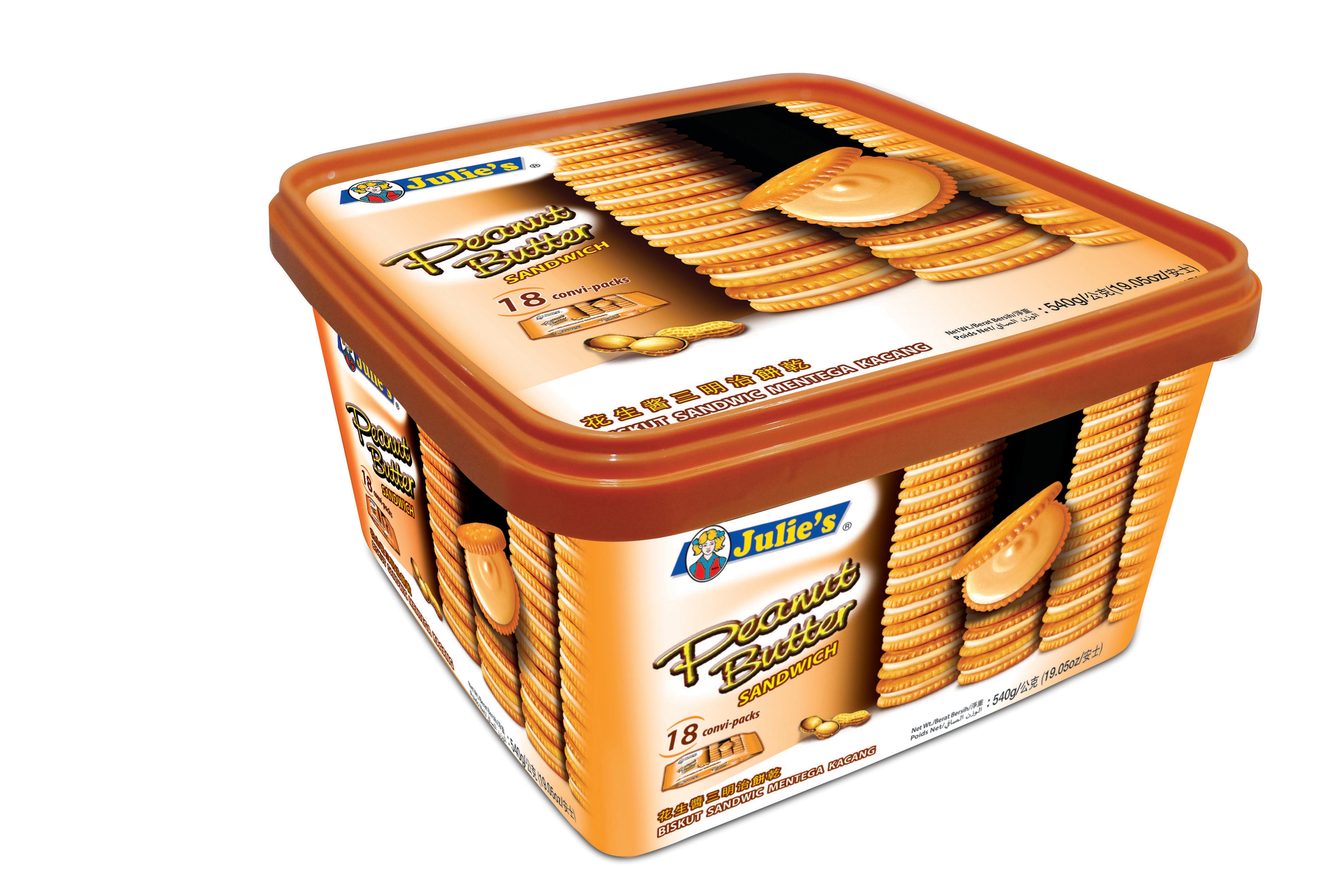Exporting to 80 destinations, China is currently its biggest overseas market, while the domestic sector remains its largest market overall.
It entered China about 20 years ago, but growth accelerated only in the past three to five years, when the company adopted a different set of business strategies.
Today, e-commerce sales account for about 25% to 30% of its total business in China. It also operates a flagship store in Tmall.
As more consumers are buying online, the firm has hired 100 employees in China to solely take care of its online business, logistics, and warehouse arrangements.
Martin Ang, the director of sales and marketing at Julie’s, told FoodNavigator-Asia: “Three years ago, we had less than 10,000 online consumers buying our biscuits regularly. Today, we are going to reach nearly half a million who are buying our biscuits regularly.”
He said that the China market could be categorised into three types of sales channels. These are the mum-and-pop shops, supermarkets and hypermarkets, and online platforms. He predicted that the ratio will be fifty-fifty for sales coming from retail and online business in the next five years.
“Now, we have about 100 people in Beijing, Shanghai, and Guangzhou solely taking care of our online business, logistics and warehousing operations. In the beginning, there was only about 20 people doing this. (As the consumer base grows), and during festive events such as Double 11, 618, and Chinese New Year, you can see a lot of orders, 10,000 to 50,000 parcels to send, so we needed more staff.”
He said that the proportion of e-commerce shoppers remained higher in China than in other markets such as Malaysia due to convenience and consumer habits.
“In Malaysia, our online business is only less than five percent. People tend to go to shop and tend to want to see products. Many things are very convenient in Malaysia.”
Change is the only constant
Ang said that stiff competition in China was expected as more innovative players joined in the scene. The firm aims to stand out by developing new flavour offerings and attractive product packaging.
“In the online space, if consumers keep on seeing the same thing over and over again, they will get a bit bored sometimes. We want to increase their appetite by adding new flavours.
“For those people who are 35 and above, I think chances are high that there is a higher degree of brand loyalty. Those who are 30 and below, they like to try new things, these are the group of people whom we need to be very innovative with.”
He said that at present, its most popular flavours in China were its Le-Mond Cheddar Cheese, followed by wafer tube with peanut butter and wafer tube with hazelnut chocolate.
“We also sell our biscuits in packaging which can be reused, such as a nice looking tin. Perhaps they want to use the tin, so some people they may want to buy more because they want to have the tin and the packaging, so we play around with the gifts,” he added.
Regions
Biscuits and confectionery are traditionally more popular in the southern parts of China, but the north east areas and metropolitan cities such as Shanghai are catching up.
While the firm’s had all along placed its focus on first and second tier cities, it is planning to enter new fields, such as the third tier cities by leveraging on the capabilities of major e-commerce players.
Last September, Alibaba announced that it has recruited on million convenience stores in China, which was around one-sixth of the total market, to use its system as their one-stop solution for digital transformation.
Under the initiative, brands could connect with stores across China that could formerly only be reached through multiple layers of sub-distributors.
“The Alibaba project is good enough for us to do something about it, because that coverage is going to be 3rd, 4th tier or even 5th tier cities.
“In China, there are millions of such mum-and-pop stores. Imagine, if I were to sell only one carton in one shop per month, it will be one million cartons, so this is no joke. Even if I were to sell one packet per month, it would still add up to one million packets, which is still a lot,” Ang said.





